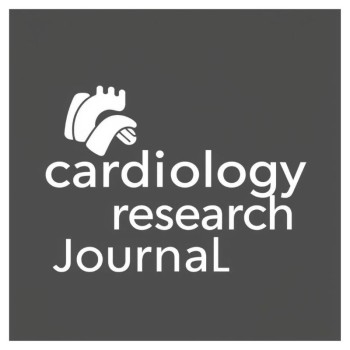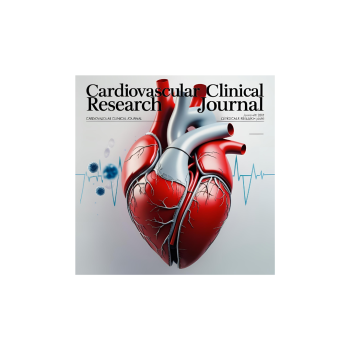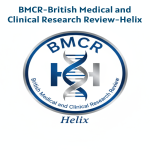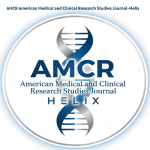Cardiology and Clinical Cardiovascular Research-Helix is a publication of Helix Health Science, United States www.helixhealthscience.com contact@helixhealthscience
http://Cardiology and Clinical Cardiovascular Research-Helix
Introduction to Cardiology and Its Importance
Cardiology is a specialized field of medicine that concentrates on the diagnosis, treatment, and prevention of heart and vascular diseases. This branch of medicine plays a critical role in managing conditions that not only affect the heart but also have far-reaching implications on the overall health of individuals. Given that the heart is a vital organ responsible for pumping blood throughout the body, maintaining its health is essential for both physical and emotional well-being.
The significance of cardiovascular health is highlighted by the fact that heart disease remains one of the leading causes of mortality worldwide. The World Health Organization (WHO) reports that millions of people succumb to cardiovascular diseases each year, making it imperative for healthcare professionals to prioritize heart health. As lifestyle-related factors, such as poor diet, sedentary behavior, and increased stress levels, contribute to the prevalence of these conditions, the need for timely interventions and risk-factor management becomes increasingly important.
In recent years, there has been an observable surge in the incidence of cardiovascular diseases, emphasizing a critical need for comprehensive research in cardiology. This research aims to understand the underlying mechanisms of heart diseases, develop effective treatments, and identify preventive measures. Thanks to advancements in clinical cardiovascular research, insights into new therapeutic options, diagnostic tools, and lifestyle changes can contribute to improving heart health outcomes.
The importance of cardiology extends beyond just clinical practice; it also encompasses education and public awareness initiatives that empower individuals to take charge of their cardiovascular health. As the global population continues to age and lifestyle-related risks proliferate, there is an urgent necessity for ongoing research and innovation within the field of cardiology. This ensures not only better patient outcomes but also contributes to the overall enhancement of public health.
The Role of Clinical Cardiovascular Research
Clinical cardiovascular research is a pivotal aspect of medical science, aimed at enhancing our understanding of heart diseases and the underlying mechanisms that contribute to these conditions. This branch of research encompasses a variety of definitions, primarily focusing on the systematic investigation of cardiovascular health, disease prevention, treatment efficacy, and patient outcomes. Its main objective is to generate knowledge that can be translated into real-world applications, ultimately improving patient care and outcomes in cardiovascular medicine.
One of the primary purposes of clinical cardiovascular research is to advance treatment strategies for heart diseases, which remain one of the leading causes of morbidity and mortality worldwide. By conducting rigorous studies, researchers can identify novel therapeutic approaches, assess the effectiveness of existing treatments, and explore innovative interventions. Clinical trials, a cornerstone of this research, involve testing new drugs, devices, or treatment protocols on human participants to assess safety and efficacy. These trials can be randomized, placebo-controlled, or open-label, each designed to yield high-quality data that informs clinical practice.
In addition to clinical trials, observational studies play a crucial role in clinical cardiovascular research. These studies evaluate patients within real-world settings, providing insights into disease progression, risk factors, and treatment outcomes. They often contribute valuable information regarding the long-term effects of therapies and contribute to the understanding of population health trends. Together, clinical trials and observational studies form a complementary approach that fuels advancements in cardiovascular medicine.
In conclusion, clinical cardiovascular research is essential for the ongoing evolution of cardiovascular care. By bridging the gap between scientific inquiry and clinical practice, it fosters the development of informed treatment protocols, enhances preventive strategies, and ultimately aims to improve the health of populations affected by heart disease.
Helix Health Science: An Introduction
Helix Health Science is a pioneering organization committed to advancing the field of cardiovascular research. Established with a clear mission to contribute to healthcare improvement through innovative research, Helix Health Science strives to enhance patient outcomes and promote a better understanding of cardiovascular diseases. By focusing on the integration of scientific inquiry and clinical application, Helix Health Science positions itself as a vital player within the broader healthcare landscape.
The vision of Helix Health Science is to lead in cardiovascular research by fostering collaborations among scientists, clinicians, and other healthcare stakeholders. This collaborative approach allows for the sharing of knowledge and resources, ultimately driving advancements in treatments and preventive strategies for cardiovascular conditions. Helix Health Science believes that the synergy created through interprofessional collaboration is essential for tackling the complex challenges posed by cardiovascular diseases.
In the context of today's rapidly evolving healthcare environment, Helix Health Science stands out for its dedication to innovation. The organization actively engages in cutting-edge research projects that explore the intricacies of cardiovascular health, examining areas such as genetic predispositions, risk factors, and novel therapeutic strategies. By aligning its research goals with the needs of patients and healthcare providers, Helix Health Science ensures that its findings translate effectively into clinical practice.
Furthermore, Helix Health Science plays a significant role in disseminating important research findings through its publications, facilitating knowledge transfer within the scientific community. By prioritizing transparency and accessibility, it enhances the dialogue between researchers, practitioners, and patients alike. Through these efforts, Helix Health Science ultimately aims to empower individuals and healthcare systems to make informed decisions that significantly impact cardiovascular health.
Collaborative Efforts in Cardiovascular Research
Collaboration plays a pivotal role in advancing the field of clinical cardiovascular research. Helix Health Science recognizes that partnerships with various institutions, laboratories, and individual researchers are instrumental in enhancing the scope and efficacy of cardiovascular studies. Such collaborations foster a multidisciplinary approach, integrating diverse expertise and resources that contribute significantly to innovation in cardiovascular medicine.
The complexity of cardiovascular diseases necessitates a concerted effort among various stakeholders. By partnering with academic institutions, research organizations, and medical facilities, Helix Health Science is able to expand its research capabilities. These collaborations allow for the exchange of knowledge, sharing of best practices, and utilization of cutting-edge methodologies, all of which are crucial for addressing the multifaceted nature of heart diseases.
Moreover, working alongside renowned researchers enhances the credibility and visibility of studies conducted under the Helix Health Science banner. Collaborative projects often attract funding and grant opportunities, thereby accelerating the pace of research. This collaborative network creates a foundation for large-scale studies that can yield comprehensive and impactful outcomes, paving the way for breakthroughs in treatment and prevention strategies.
The synergy created through these partnerships not only enriches the research output but also facilitates the translation of findings into clinical practice. By fostering relationships with fellow cardiology experts and researchers, Helix Health Science aims to bridge the gap between laboratory research and patient care. Ultimately, these collaborative efforts are vital for driving forward the advancement of cardiovascular medicine, ensuring that innovative solutions are accessible and effective in improving patient outcomes.
Educational Initiatives and Resources Provided by Cardiology and Clinical Cardiovascular Research-Helix
Helix Health Science plays a pivotal role in advancing the field of cardiology through a variety of educational initiatives and resources specifically designed for healthcare professionals. By offering tailored workshops, informative webinars, and comprehensive publications, Helix contributes significantly to the continuous professional development of clinicians working in cardiovascular care.
Workshops offered by Helix Health Science are interactive sessions that focus on the latest advancements in cardiology. These educational events are designed to foster hands-on experiences, allowing practitioners to engage directly with new technologies and techniques that can be implemented in clinical practice. By facilitating such workshops, Helix enables healthcare providers to stay at the forefront of cardiovascular research, ensuring that their skills and knowledge are up-to-date.
In addition to workshops, Helix organizes a series of webinars that cover a wide range of topics related to cardiology. These online sessions provide flexible access to expert insights and emerging trends in cardiovascular medicine, allowing professionals to learn at their own pace. The webinars also encourage participation from global experts, creating a platform for knowledge exchange and discussion that transcends geographical barriers. This accessibility is particularly important in a field that is constantly evolving, as it helps practitioners remain informed about the latest findings and practices.
Helix Health Science is also dedicated to disseminating valuable research findings through its publications. By producing high-quality articles, journals, and research papers, Helix aims to provide evidence-based information that practitioners can rely on for informed decision-making. These publications serve as a crucial resource for healthcare providers, offering insights that can improve clinical outcomes in cardiovascular care.
Future Directions in Cardiology Research
The field of cardiology is undergoing significant transformation, driven by advancements in research methodologies, technological innovations, and a growing understanding of cardiovascular diseases. As we look to the future, several key trends and innovations promise to reshape the landscape of cardiovascular medicine. One of the most notable directions is the rise of personalized medicine, which tailors treatment plans to individual patients based on their unique genetic, environmental, and lifestyle factors. This approach aims to enhance treatment efficacy and minimize adverse effects, thereby optimizing patient outcomes in cardiovascular care.
Emerging technologies are also poised to play a pivotal role in the evolution of cardiology research. For instance, the integration of wearable devices and remote monitoring systems allows for real-time tracking of patients' cardiovascular health. This constant data influx can lead to proactive management of heart conditions and enable healthcare providers to intervene before complications arise. Furthermore, innovations in telemedicine are expanding access to cardiovascular care, particularly for individuals in remote areas, thereby bridging the gap in healthcare disparities.
Patient-Centered Approaches in Cardiovascular Research
The evolution of cardiovascular research necessitates a shift towards patient-centered approaches that prioritize the voices and experiences of individuals affected by heart conditions. Traditional research methodologies often focused primarily on clinical data and outcomes, but the integration of patient input is becoming increasingly recognized as vital for improving the efficacy and relevance of treatment strategies. By involving patients in the research process, healthcare professionals can better understand their needs, preferences, and values, which subsequently informs the development of more tailored and effective treatment modalities.
Engagement with patients throughout the research cycle not only enhances the quality of the research outcomes but also fosters a sense of ownership among patients regarding their health. This participatory model empowers individuals by giving them a stake in research that directly impacts their lives, leading to improved adherence to treatment protocols and better health outcomes. Moreover, patient feedback can provide insights that researchers might overlook, offering a comprehensive view of the challenges faced by those with cardiovascular diseases.
One of the critical aspects of patient-centered research is the establishment of effective communication channels between researchers and patients. Researchers should be encouraged to foster relationships built on trust and transparency, enabling open dialogues about study designs, objectives, and potential risks. Approaches such as focus groups, interviews, and surveys can serve as effective tools for obtaining valuable insights directly from patients, ensuring that their perspectives are integrated into the research framework.
Additionally, fostering a collaborative environment where patients, healthcare providers, and researchers engage as partners can lead to innovative solutions for addressing cardiovascular health challenges. As the field of cardiovascular research continues to evolve, prioritizing patient engagement remains essential for achieving meaningful advancements that truly reflect and meet the needs of the populations served.
Conclusion
Ongoing research in cardiology is crucial for enhancing our understanding of cardiovascular diseases and improving patient outcomes. As we have observed, Cardiology and Clinical Cardiovascular Research-Helix plays a pivotal role in this domain, contributing significantly to the body of knowledge surrounding heart health. Through its commitment to clinical cardiovascular research, Helix Health Science strives to identify novel treatment options, refine diagnostic techniques, and ultimately advance the field of cardiology.
The need for continued research cannot be overstated, particularly in light of the rising prevalence of cardiovascular disorders globally. Innovations arising from rigorous scientific inquiry can lead to the development of cutting-edge therapies and intervention strategies aimed at managing heart diseases more effectively. As such, organizations like Helix Health Science are integral to driving forward the progress required to combat these health challenges.
Furthermore, ongoing studies and trials often pave the way for early diagnosis, which is crucial for improving survival rates in patients. By pinpointing risk factors and enabling better screening processes, research efforts translate into actionable insights, facilitating timely interventions that can save lives. Enhanced awareness and understanding of heart health contribute significantly to both public health outcomes and individual patient management.
In summary, the impact of continued research in cardiology is profound, shaping the future landscape of cardiovascular health. The contributions of Helix Health Science illustrate the essential role that ongoing clinical research plays in propelling forward advancements that ultimately lead to better healthcare solutions, improved treatment modalities, and enhanced life quality for individuals affected by cardiovascular diseases.








